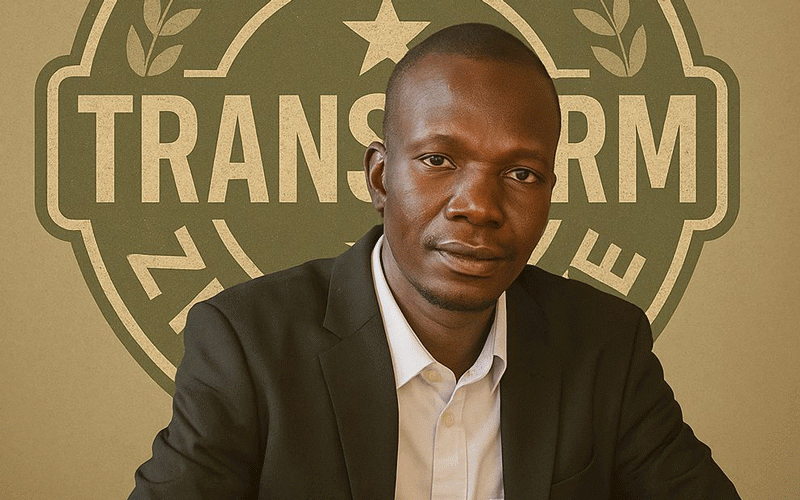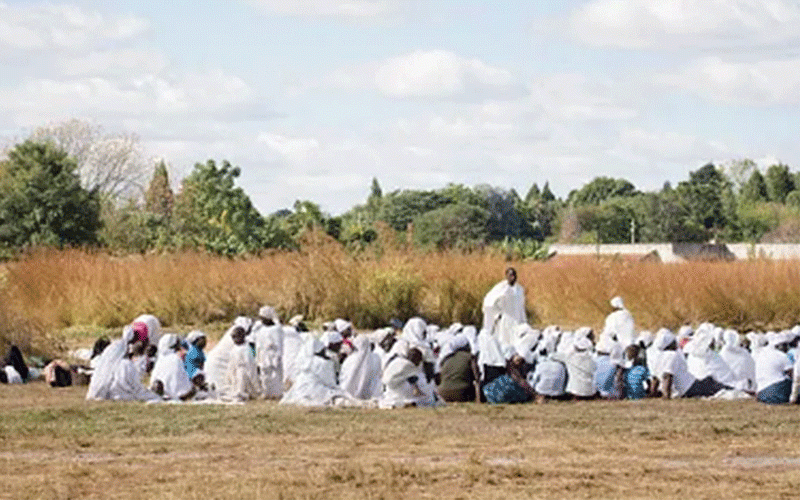
In a country where people who have made mistakes are often cast aside, and where emotional pain is rarely spoken about openly, one man is working to change that.
Zwelani Ndebele, the founder of Aid Transform Zimbabwe, may not be a widely known figure, but the impact of his work is reaching far and wide into prison cells, along dusty rural roads, and inside packed school classrooms.
His journey is one shaped by loss, time in prison, and eventually, personal transformation.
Rather than letting his past define him, Zwelani Ndebele has chosen to use it as a platform for something greater.
Through his organisation, he has helped others face their own trauma, find healing, and take steps toward rebuilding their lives.
His work reminds us that redemption is possible, that brokenness does not mean the end, and that sometimes, the most powerful change comes from those who have walked through darkness themselves.
Zwelani’s story begins not with crime, but with loss. In the early 2000s, the death of his 16 month-old sister shattered the fragile fabric of his childhood.
His family splintered under the weight of grief, with his mother relocating to Figtree, leaving a 13 year-old Zwelani to care for his younger siblings, aged 10 and seven.
“The pain fractured our family,” he recounts. “I was left to parent my siblings while still trying to understand my own pain. It was too much for a child.”
Without emotional support or adult guidance, loneliness and depression seeped in, leading him to internalise a sense of abandonment.
Questions that no child should have to carry haunted him: “Why did they leave us?” “Did they neglect us because we weren’t good enough?” “Why me, at just 13?”
What began as grief soon evolved into emotional paralysis, leaving him desperate for validation.
In a misguided attempt to claim his place among adult relatives who drank too much, Zwelani began experimenting with alcohol.
What began as a bid for acceptance spiraled into addiction.
Alcohol offered the illusion of belonging and a numbing agent to his internal storms.
“I wanted to be seen, respected. I thought if I drank like them, I would matter,” he confesses. “But instead of healing, I got lost deeper.”
His depression grew more acute, masked by bravado and drunken laughter. The trauma, unprocessed and compounded by isolation eventually erupted.
In a moment of drunken rage, he stabbed a family member during a domestic argument. “It was a moment I will never stop regretting,” Ndebele recounts. “That one act cost me everything.”
Convicted and sentenced to serve at Plumtree Prison, he found himself behind bars. But prison did not destroy him. Instead, it brought clarity to his life.
In the silence of incarceration, Zwelani began facing the buried grief he would outrun for years.
“I realised I was not just in prison physically I had been emotionally imprisoned for years,” he explains.
“Alcohol wasn’t the problem. Trauma was. Loneliness was. Silence was.”
This realisation was the birth of Aid Transform Zimbabwe, not yet as an organization, but as a whisper of purpose. Within the prison’s cold walls he got an interest in arr; he began journaling, writing poetry, and reflecting deeply on life.
Upon release, Zwelani did not emerge with vengeance but with vision.
He launched Aid Transform Zimbabwe, a grassroots initiative that fuses art, advocacy, and education to help people unpack trauma and make informed life choices in life.
“It is more than an organisation. It’s an invitation to heal,” he insists.
Programmes like Secrets That Kill (a talk show confronting taboo issues), Poems With No Boundaries (featuring works like Sibotshiwe kodwa asibotshwanga), and Inmates, Let’s Think About the Box (a prison-authored short story anthology) which aims to humanize pain, dismantle shame, and spark conversations around emotional health.
Through his voluntary programme, Navigating Life Transitions Without Fear, Zwelani returns to schools not as a lecturer, but as the mentor he once needed in his childhood.
“Many of these pupils are scared and confused just like I was. I speak to that child in each classroom who feels invisible,” he says.
Teachers have praised the initiative for bridging the emotional gap between academic content and life skills, particularly for final-year students grappling with self-identity and peer pressure.
His work doesn't end in classrooms. With a programme called Talent Emagudugudwini, Zwelani travels to rural communities, spotlighting hidden talents and mentoring youth who might otherwise drift into drugs, crime, or premature parenthood.
“In rural spaces, we often write off potential because of geography,” he says. “But I see poets, dancers, thinkers — just waiting for someone to believe in them.”
Zwelani’s story underscores a deeper national issue - the dangerous normalisation of silence around mental health, especially among men.
“Had someone simply asked me how I felt and truly listened, maybe I wouldn't have hurt anyone,” he reflects. “We need to normalise speaking about depression, abandonment, and loneliness without shame.”
His journey reminds us that many Zimbabwean youths are not ‘delinquents’ by choice, but by circumstance they are crushed by emotional burdens they are never taught to name and solve.
Despite the growing reach of Aid Transform Zimbabwe, Zwelani struggles with funding. Most programmes rely on informal support, well-wishers, and personal sacrifice.
“To visit prisons or schools, I often use my own money,” he says. “But stories do not pay for buses. I need institutional support.”
He is calling on policymakers, non governmental organisations, schools, and donors to step forward not just to give money, but to partner in shifting a national consciousness.
Zwelani’s story is not just personal it is profoundly political, social, and spiritual.
It forces Zimbabwe to ask: How do we treat the wounded? What future do we offer a child whose first lesson is abandonment? And what happens when that child begins to fight back — not with fists, but with words?
“This is not about me anymore,” he says. “It is about every young person battling trauma in silence. If my pain can become someone’s path to healing, then I have done my part.”
- Raymond Millagre Langa is a passionate Zimbabwean creative, blending music, poetry, and social commentary to advocate for justice, identity, and cultural pride. As a committed artist and independent thinker, he uses his voice to challenge norms, inspire youth, and preserve African heritage through art.










